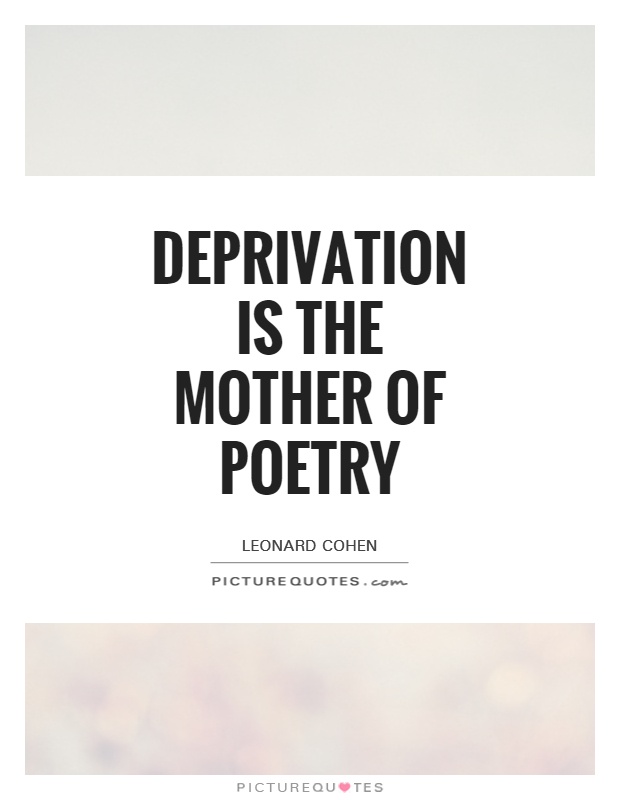Deprivation is the mother of poetry

Deprivation is the mother of poetry
Leonard Cohen, the legendary singer-songwriter and poet, is often associated with the idea that deprivation is the mother of poetry. Throughout his career, Cohen's work has been deeply influenced by his experiences of loss, heartbreak, and struggle. His lyrics are filled with themes of longing, loneliness, and existential despair, reflecting the pain and suffering he has endured in his own life.Cohen's early life was marked by a sense of displacement and alienation. Born into a middle-class Jewish family in Montreal, Canada, he struggled to find his place in the world. He was a sensitive and introspective young man, drawn to the arts and literature from an early age. However, his family's expectations and societal pressures pushed him towards a more conventional path. Cohen studied at McGill University and pursued a career in law, but he soon realized that his true calling lay elsewhere.
In the 1960s, Cohen emerged as a poet and songwriter, capturing the spirit of the era with his haunting melodies and profound lyrics. His songs, such as "Suzanne," "Bird on the Wire," and "Hallelujah," have become timeless classics, beloved by fans around the world. Cohen's music is characterized by its raw emotion and deep introspection, reflecting his own struggles with love, loss, and spirituality.
Throughout his life, Cohen faced numerous personal and professional challenges. He struggled with depression, addiction, and financial difficulties, enduring periods of isolation and despair. However, it was through these experiences of deprivation and hardship that Cohen found his greatest inspiration. His poetry became a means of catharsis, a way to make sense of the chaos and pain of the world.
Cohen once said, "There is a crack in everything, that's how the light gets in." This sentiment encapsulates his belief that beauty can emerge from darkness, that poetry can arise from deprivation. In his work, Cohen explores the depths of human emotion, delving into the complexities of love, loss, and longing. His words resonate with a sense of profound truth and wisdom, offering solace and comfort to those who have experienced their own struggles.












 Friendship Quotes
Friendship Quotes Love Quotes
Love Quotes Life Quotes
Life Quotes Funny Quotes
Funny Quotes Motivational Quotes
Motivational Quotes Inspirational Quotes
Inspirational Quotes